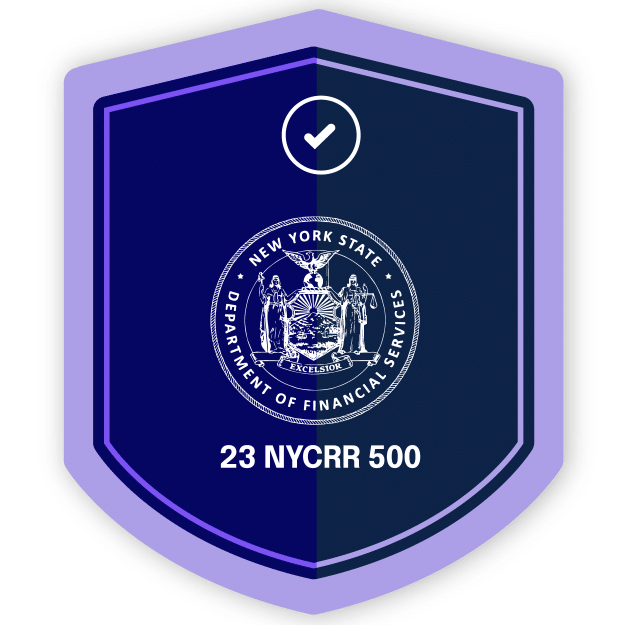
Guide to
NYDFS Part 500 Cybersecurity Regulation
What is the NYDFS Part 500 Cybersecurity Regulation?
On March 1, 2017, the state of New York rolled out the 23 NYCRR 500 regulation, a law that demands financial companies implement a detailed framework to better protect consumer data privacy.
Who NYDFS Part 500 applies to
This law applies to any registered entity providing financial services in the state of New York including:
Key requirements
NYDFS Part 500 requires supervised entities to assess their cybersecurity risk profiles and implement a comprehensive plan that recognizes and mitigates that risk. The law has set a set of requirements to assist organizations in preventing data breaches. Covered organizations need to:
To comply, covered entities must meet the standards set in the law, submit certification of compliance, and, every year following initial compliance, file a set of reports with the Department of Financial Services through the NYDFS website.
NYDFS Part 500: Enforcement and penalties for non-compliance
NYDFS Part 500 is enforced by the NYS Department of Financial Services. The Department of Financial Services has authority to issue a consent order, impose a civil penalty, or revoke the license of a financial institution according to NY Banking law. NY Banking law authorizes up to
1) $2,500 per day during which a violation continues,
2) $15,000 a day in the event of a reckless practice or pattern of misconduct, or
3) $75,000 per day in the event of a knowing or willful violation.
23 NYCRR 500: Frequently Asked Questions
Hyperproof Makes NYDFS Part 500 Compliance Simple

Ready to see
Hyperproof in action?









